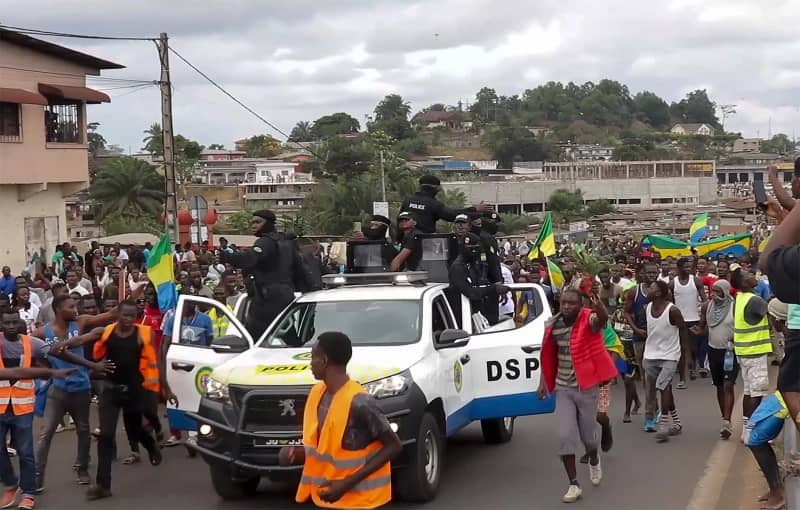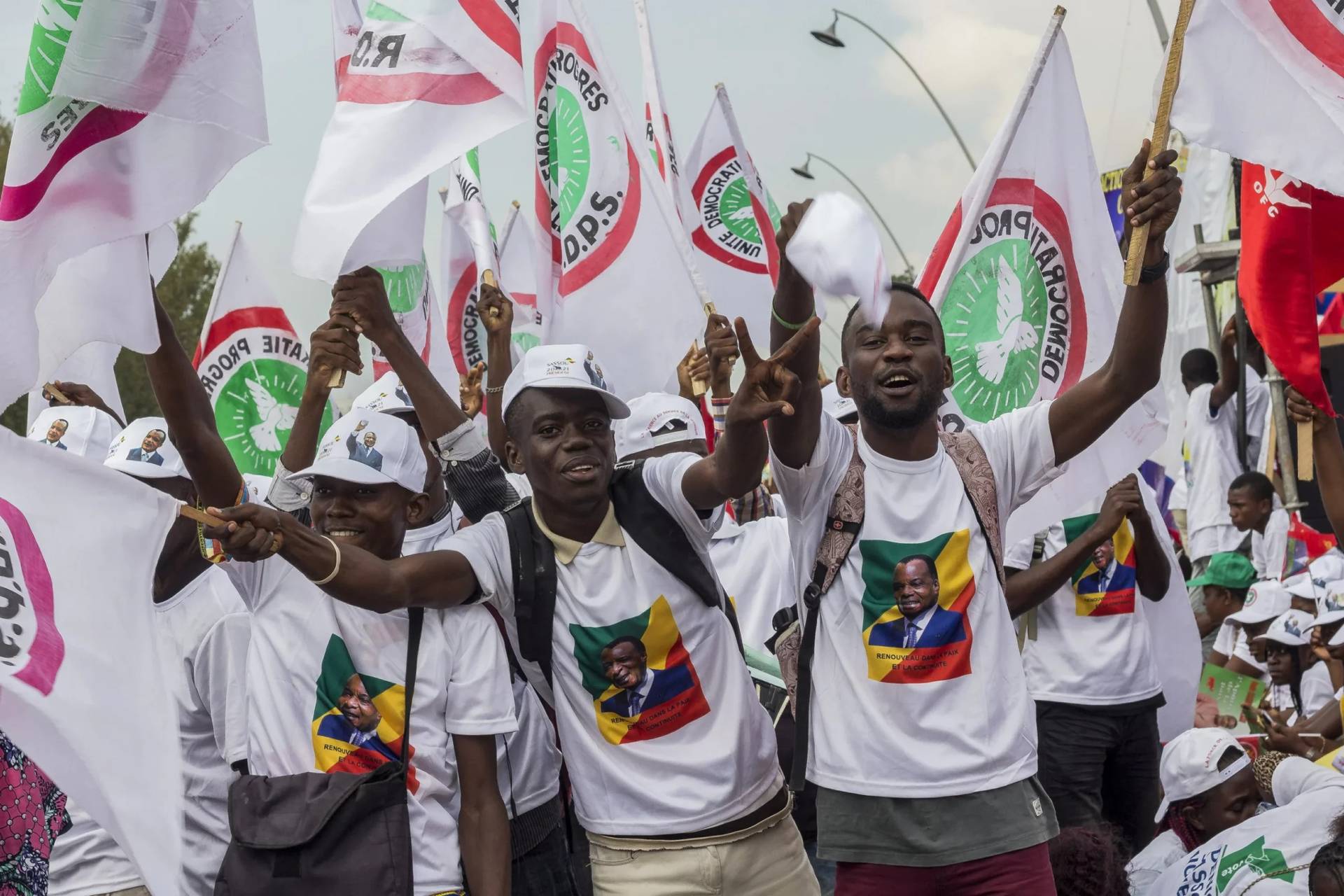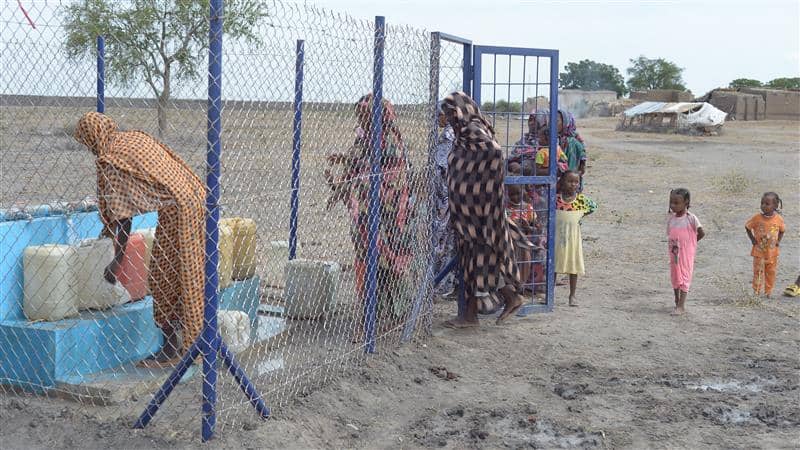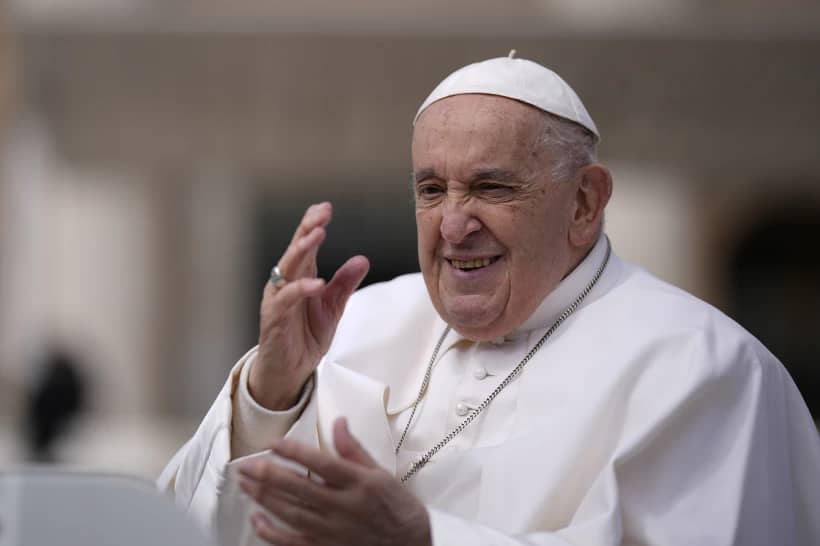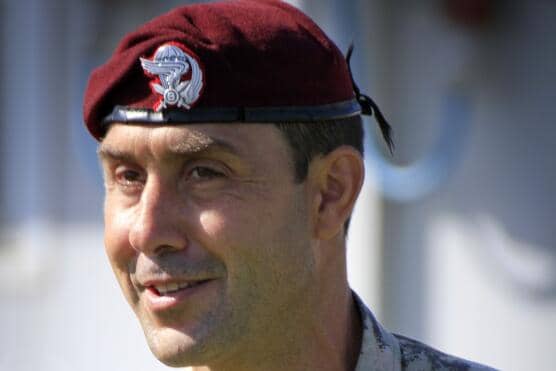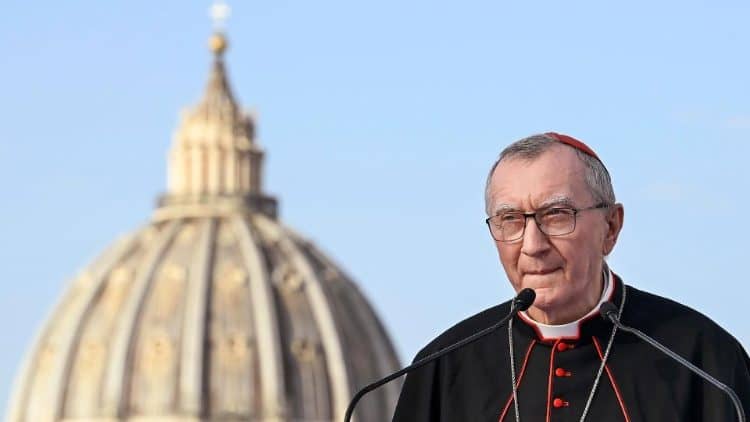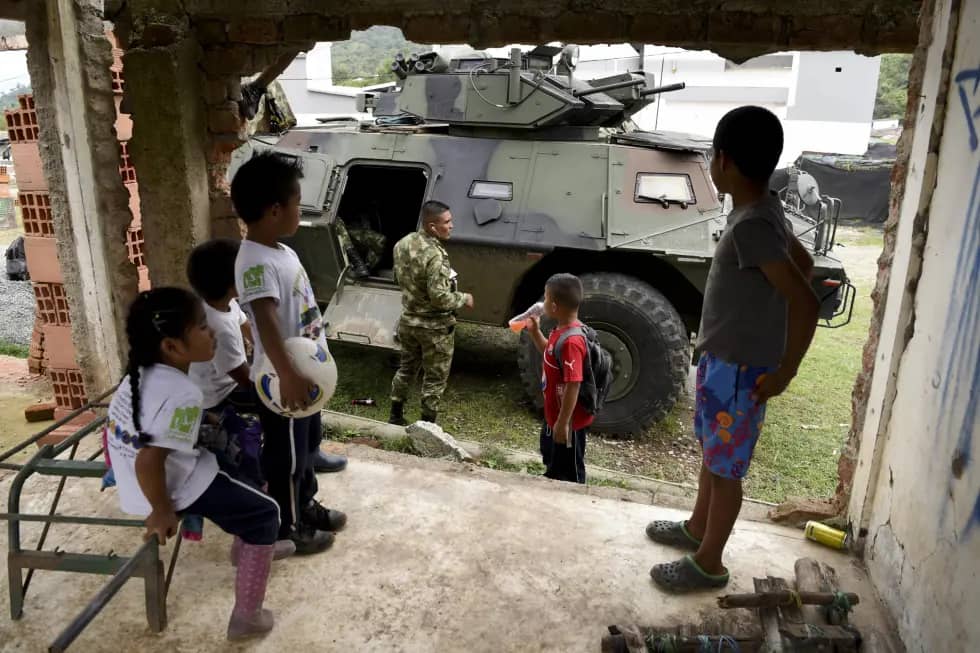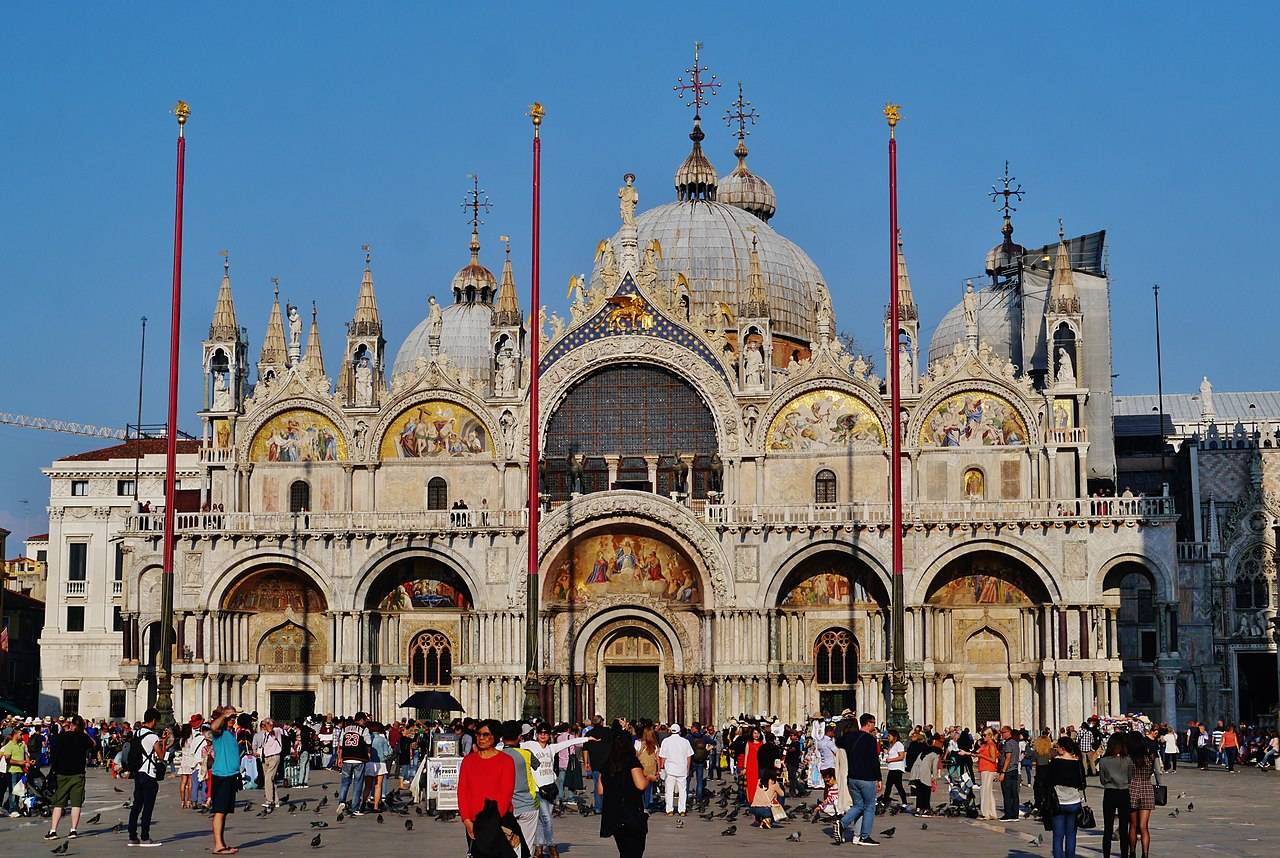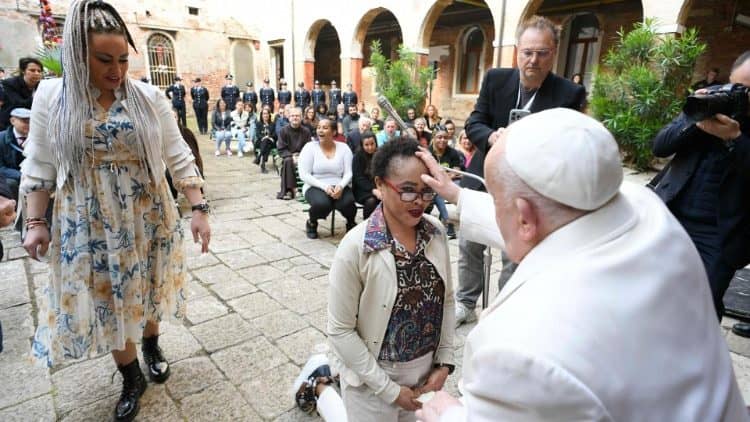YAOUNDÉ, Cameroon – Archbishop Jean-Patrick Iba-Ba of Libreville says the “inclusive national dialogue” that went under way in Gabon on Tuesday will lay the foundations for a more united, prosperous and democratic country.
The archbishop was designated Chair of the National Dialogue by the head of the transitional government, General Brice Oligui Nguema. Iba-Ba was speaking at the start of the National Dialogue taking place at the Libreville Sports Complex where around 600 delegates have gathered for the dialogue that will end on April 30.
“I am convinced that this Dialogue carries the hopes and aspirations of the entire Gabonese people,” the archbishop said, so that they can at last “see our dear country, Gabon get out of its multi-layered crises, and to resolutely and definitively take the route of the restoration of values of integrity, fraternity, sharing, and socio-economic development which found great nations.”
He said the dialogue should be able to “lay the foundations for a new Gabon, “so long dreamed of by our ancestors is finally coming to us.”
He called on the delegates to lay aside their personal interests and “embrace the logic of inclusion, so that this Dialogue can serve as the foundation for a process of genuine reconciliation.”
Christianity is the nation’s predominant religion, practiced by about 76 percent of the population. Catholicism is the dominant faith, and just over half of the people of Gabon – located in the western part of central Africa – are Catholic.
Iba-Ba noted that “so much harm has been done” to the people of Gabon but warned against the temptation of seeking revenge.
“We must not give in to the temptation of incrimination or vengeance”, the archbishop warned, and insisted that the National Dialogue must never be used for scores-settling.
“Rather, it is about laying the foundations for the Gabon of tomorrow, which will be oriented towards promoting the values of respect for others, human dignity and solidarity,” he said.
He said it was a “historic opportunity to bequeath to posterity a fairer, more fraternal and prosperous Gabon.”
“Today we are called upon to participate in the writing of our common history, without exclusion of any kind. At the end of this Dialogue, only the people will emerge victorious for a Gabon endowed with a new social contract imbued with justice, peace and progress,” he said.
“Let us enter resolutely into the hope of a new Gabon, a better Gabon for all. May God’s spirit enlighten our minds. May He renew in us his gifts of science and wisdom. May God bless the work, Gabon and all its inhabitants,” the archbishop said.
The National Dialogue is part of the promises made by the military junta that seized power on August 30, 2023, putting an end to the over half a century reign by the Bongo family.
President Ali Bongo Ondimba had ruled the country from 2009 to 2023. Ali had succeeded his father, Omar Bongo, who ruled the tiny Central African country for 42 years – from 1967 until his death in 2009.
By the time he was overthrown, Ali Bongo had won re-election to prolong his 14-year reign. Brice Oligui Nguema, the coup leader, now says the “inclusive National Dialogue” is designed to lay the groundwork for a “free, fair, transparent and credible elections.”
The transitional president told the Gabonese people that the dialogue will examine a draft constitution that would be approved by a referendum on a date chosen by Oligui. After that, the government would hold elections to transfer power to civilian rulers.
Seeking to lend legitimacy to the process, Oligui noted that the issues to be discussed in the dialogue emanate from over 38,000 proposals coming from the Gabonese people.
But discordant voices are being raised concerning the profile of those taking part in the dialogue.
According to opposition figure Anges Kevin Nzigou, Oligui carefully selected delegates who were already loyal to the military junta. The executive secretary of the Party for Change (PLC) contends that the majority of the about 600 delegates are from the military and transitional institutions appointed by the Head of State: Government, deputies, senators, certain municipal and departmental councils, and other similar bodies.
He complained that democratic procedure was not respected, and accused the military junta of demonstrating “its desire to control the debate from start to finish.”
Guy Pambo Mihindou, a political science researcher at the University of Libreville holds a similar view.
“Organizing a dialogue and choosing who comes is a bit like having defined what is going to be said,” he told the French newspaper, LeMonde.
It is not the first time Gabon is organizing a national conference. After the 1990 National Conference, presided over by then Bishop Basile Mve Engone (who became archbishop of Libreville from 1998-2020), Gabon has once again placed its trust in the clergy. They have his successor Iba-Ba with the presidency of the 2024 Inclusive National Dialogue.
Over the 34 years between these two meetings, the country has organized four other such gatherings, according to Iba-Ba.
“Two observations can be drawn from these various conferences. The first is that they brought exclusively the political class since they were meant to resolve political problems resulting from different elections. The second observation is that these meetings had very often ended with a feeling that often left a taste of unfinished business, resulting in a feeling of dissatisfaction among the population,” the archbishop said.
Oligui said the current dialogue has not only brought together people from a broad spectrum of the Gabonese society, it has also brought together more delegates than any of the previous conferences.
“The military has done its part,” Oligui said, apparently in reference to overthrowing the Bongo government considered corrupt, but also in reference to organizing the National conference.
“Let the Church do its part,” the transitional president said, apparently challenging the Libreville archbishop to lead the deliberations to its logical conclusions.
Iba-Ba understands the weight of the assignment, noting that “the hopes of an entire people rest with us.”
“I would like to remind us that the choices we will make within the framework of this dialogue should be guided by our desire to see this country once again become an enviable place to live in,” the archbishop said.
“It is our chance to extricate our nation from the web of crises that has ensnared us. Let us resolutely and definitively chart a course toward stability, unity, and progress,” he said.







